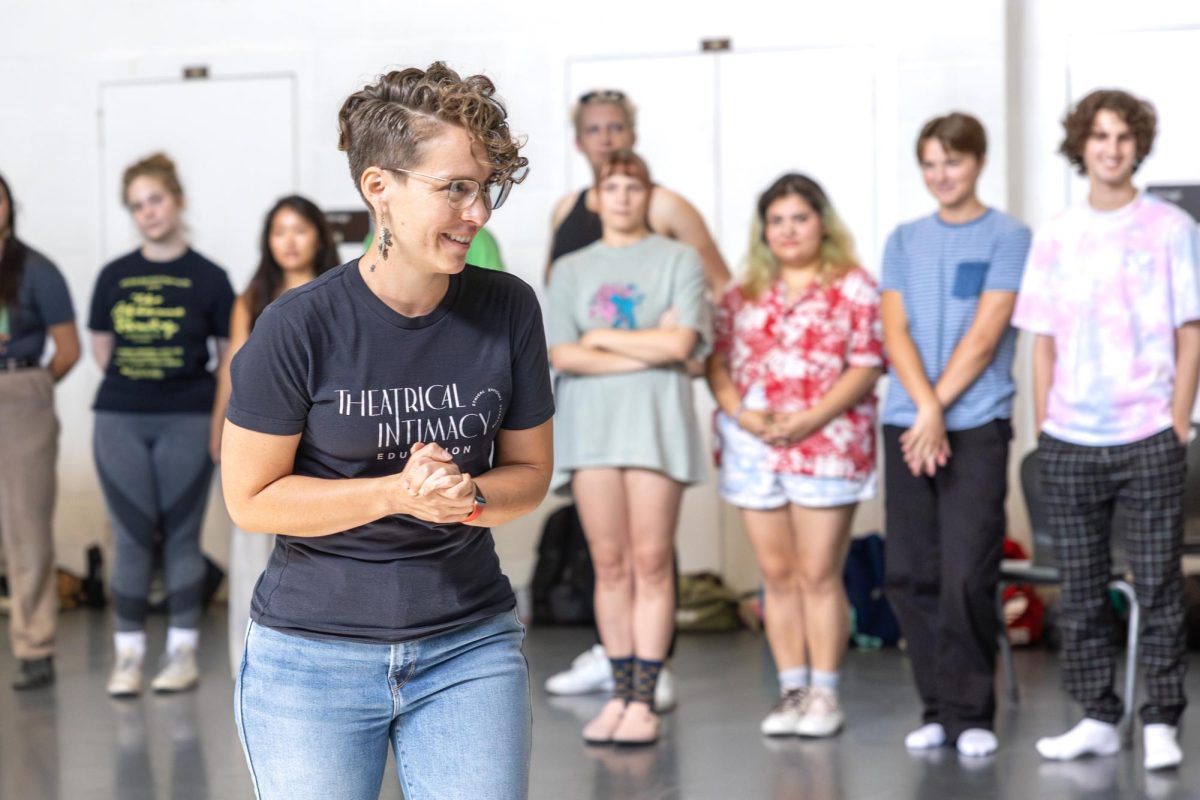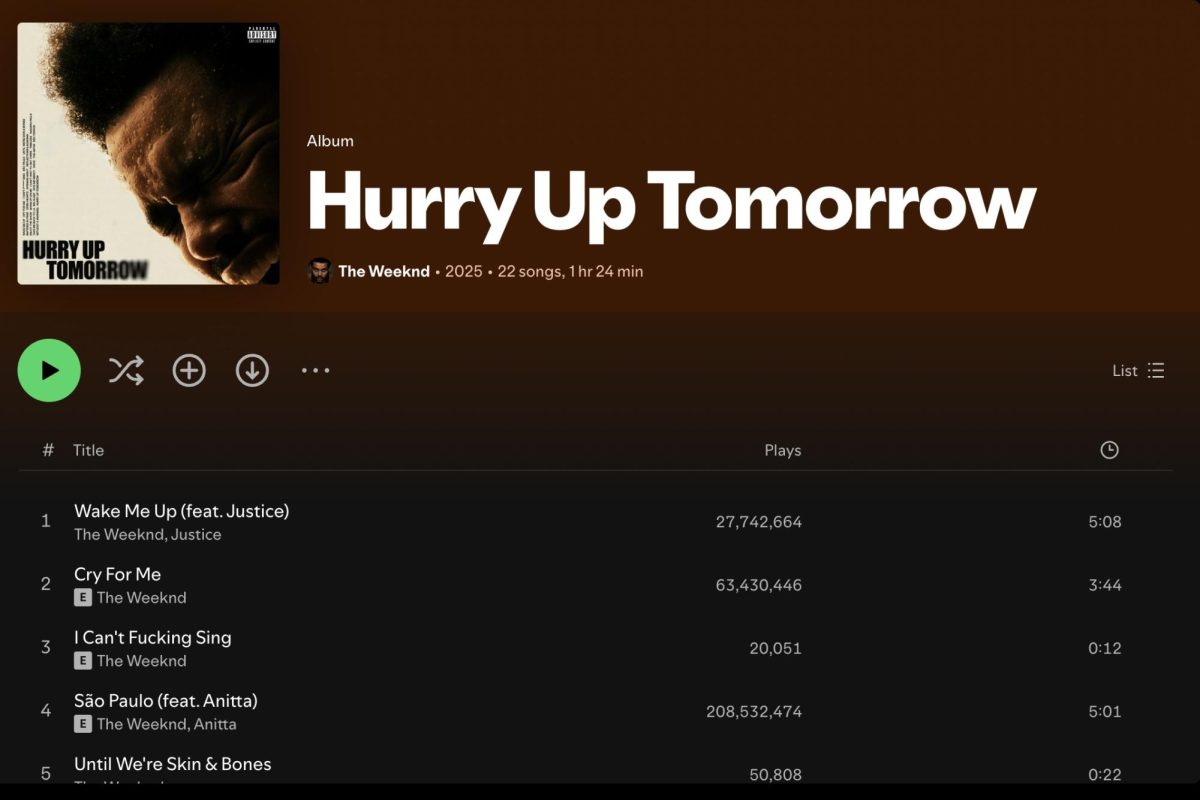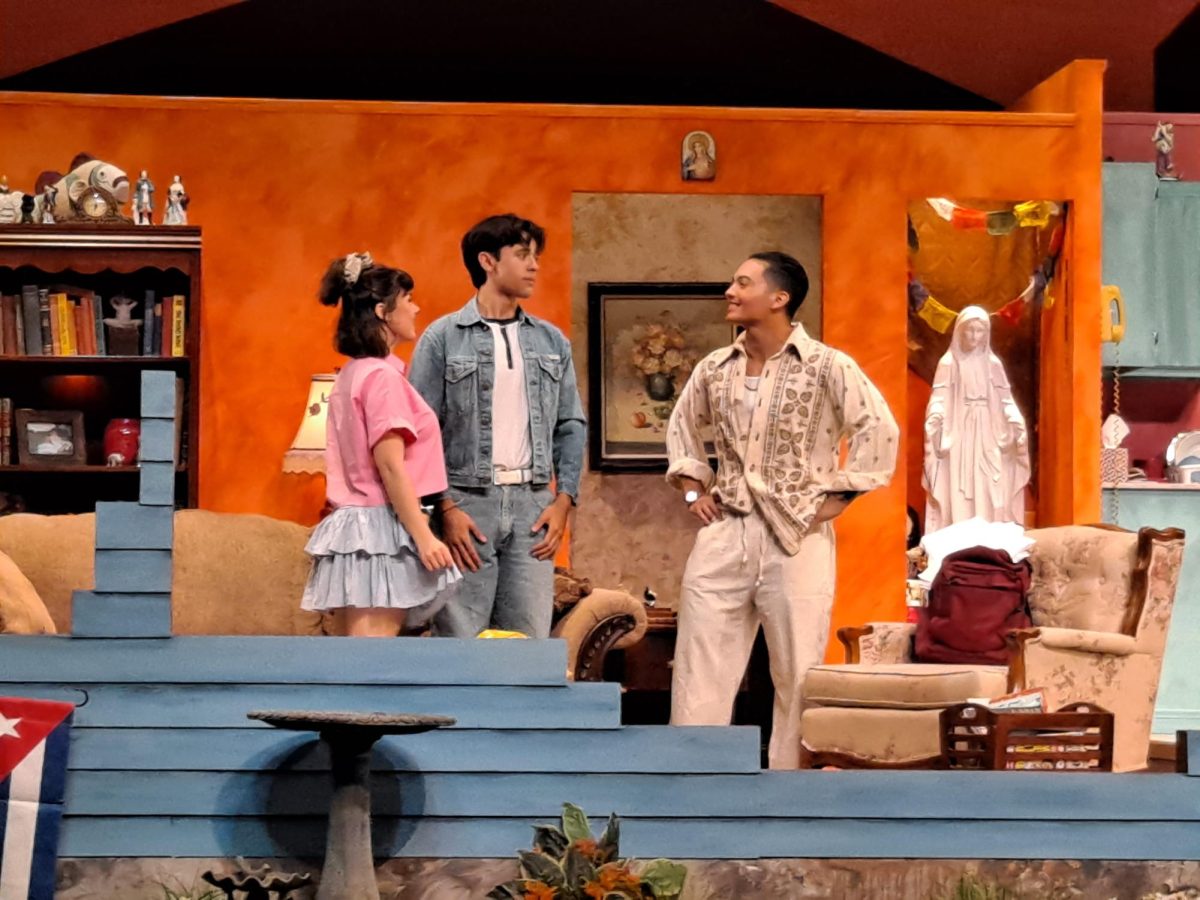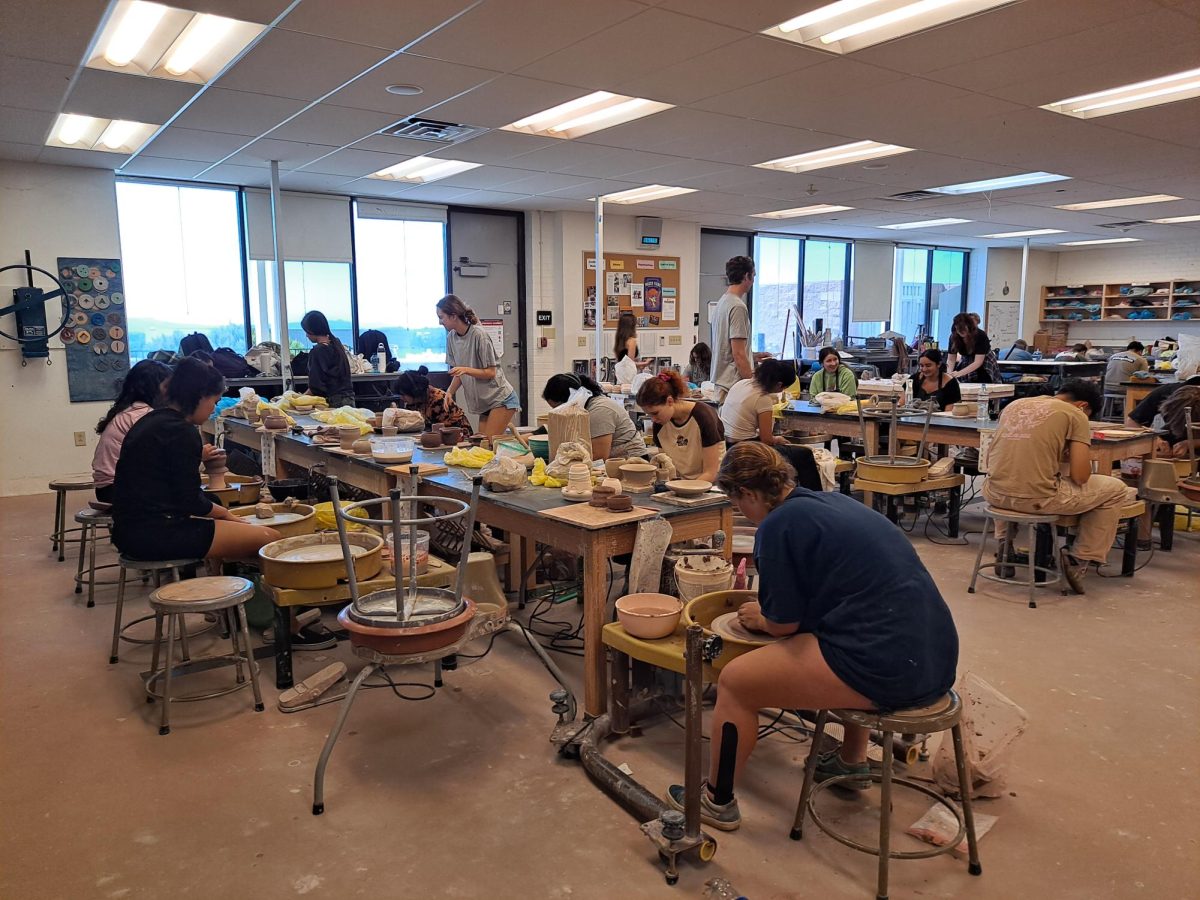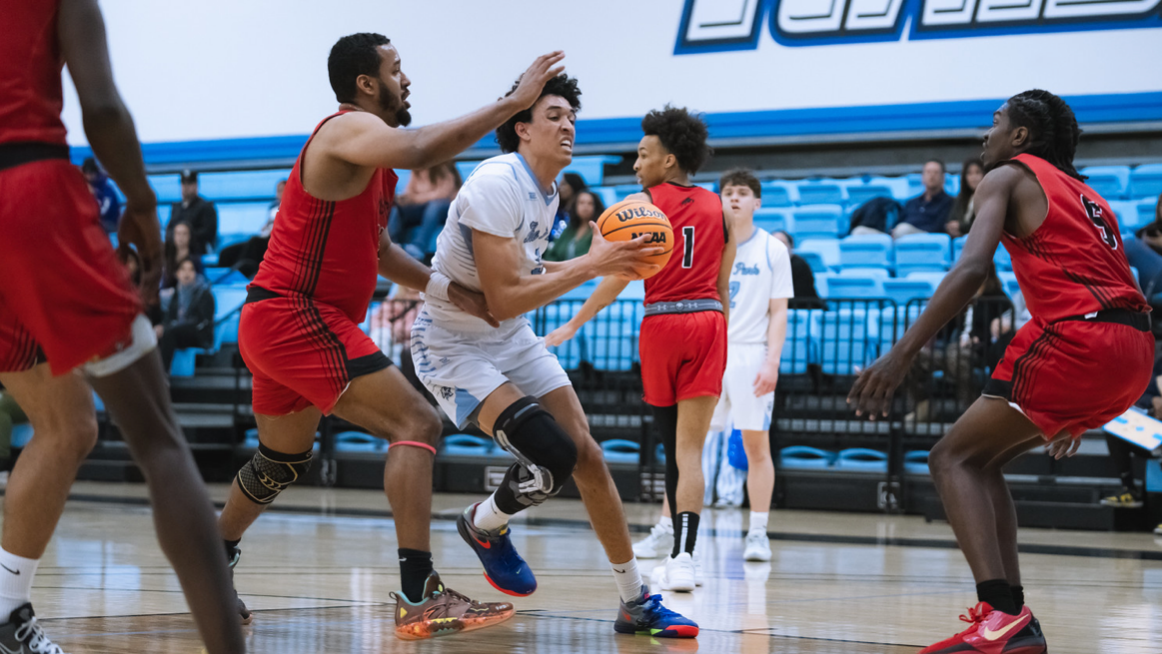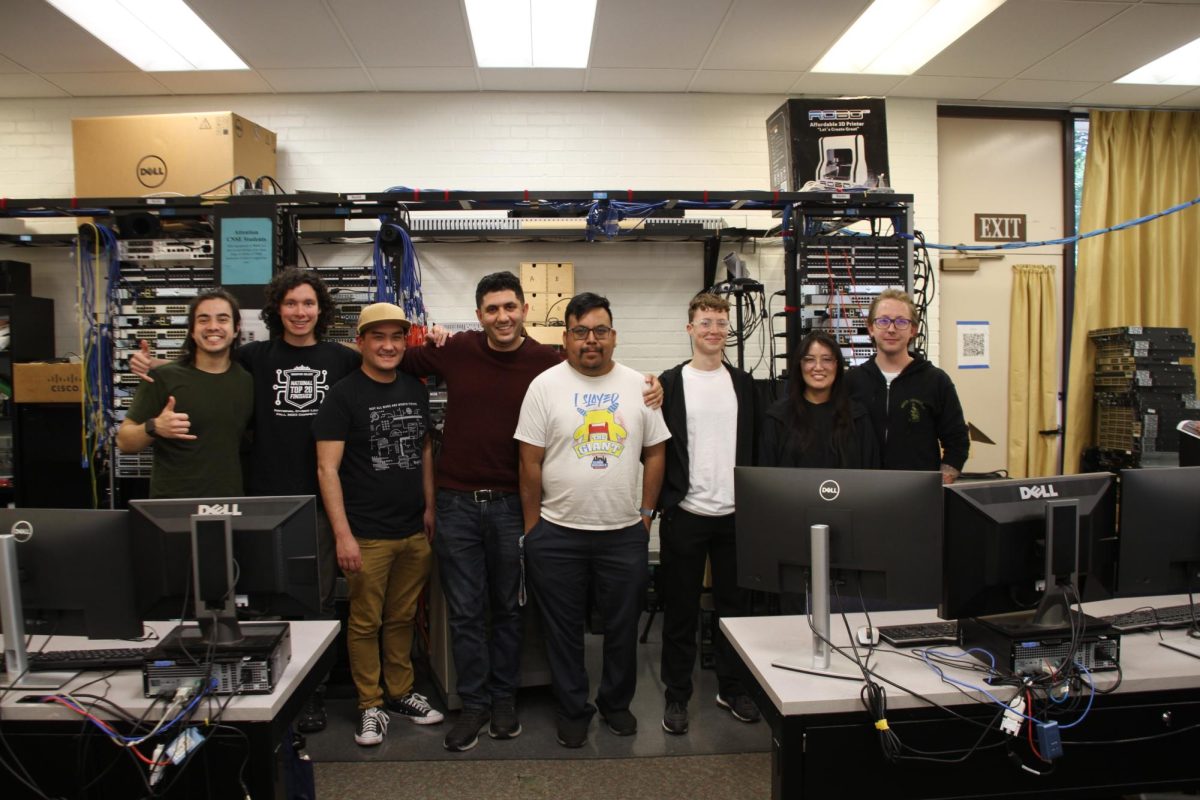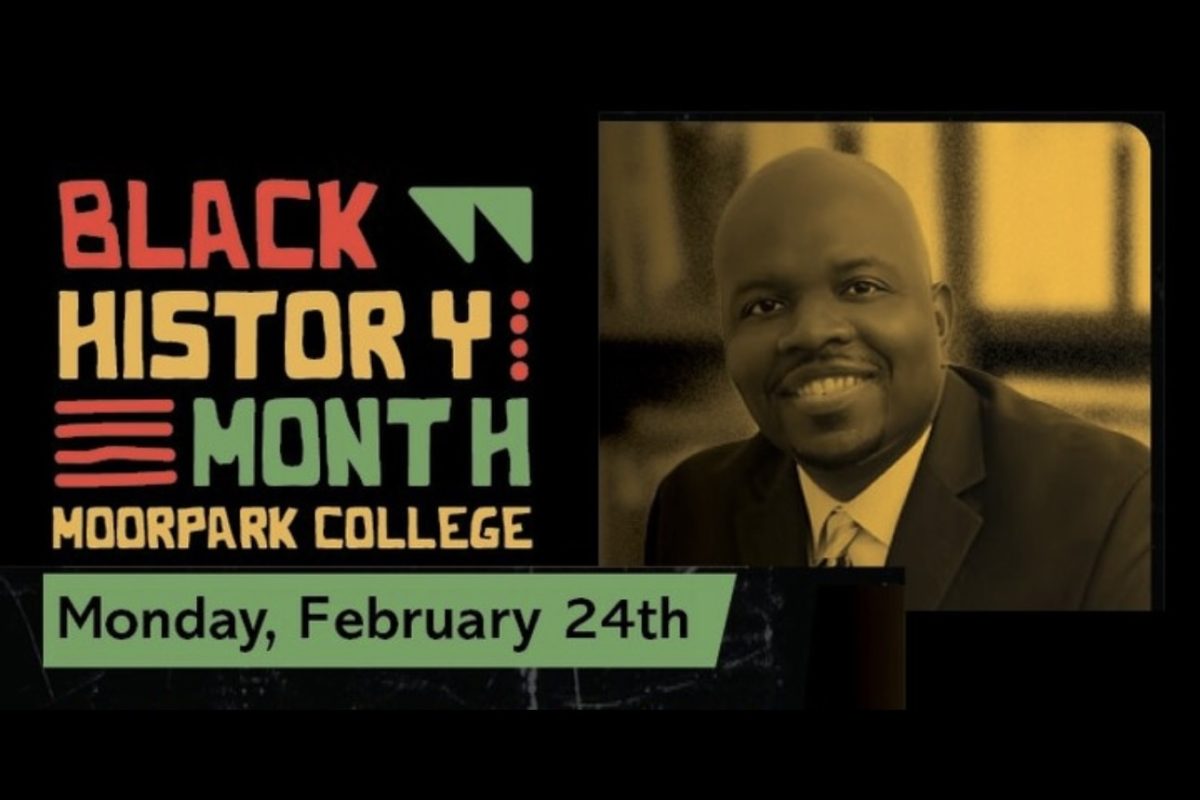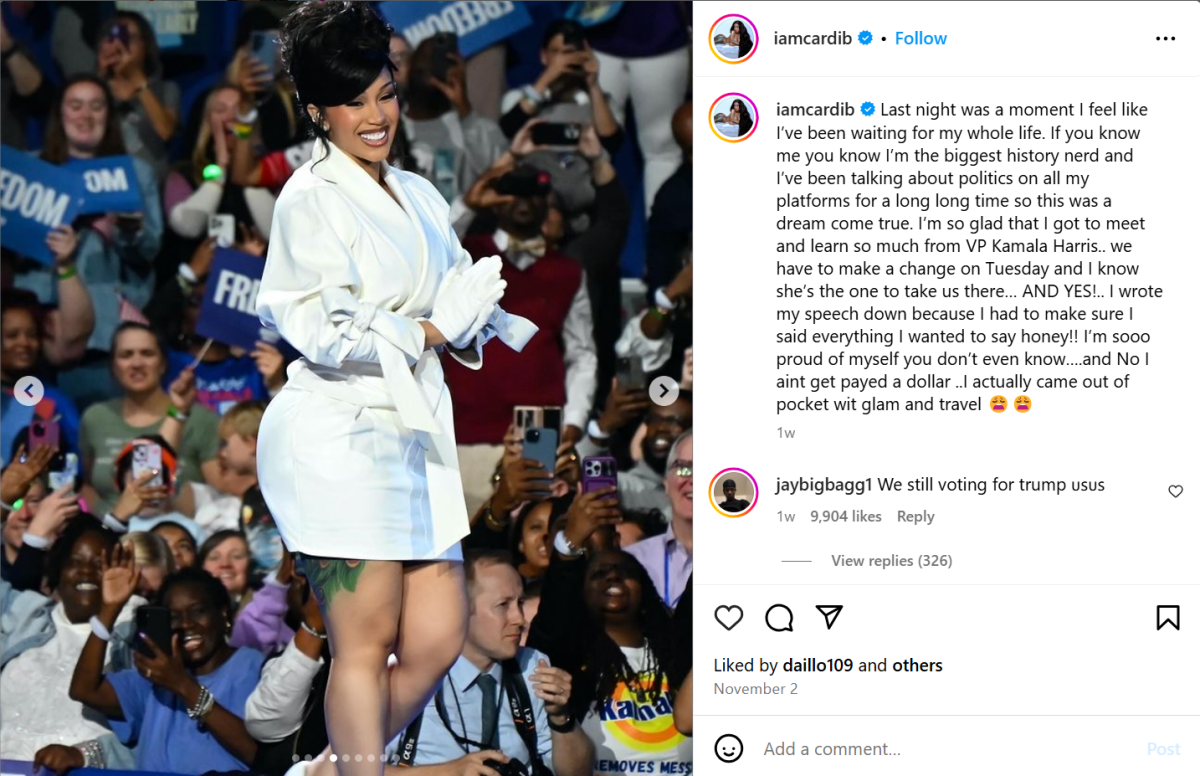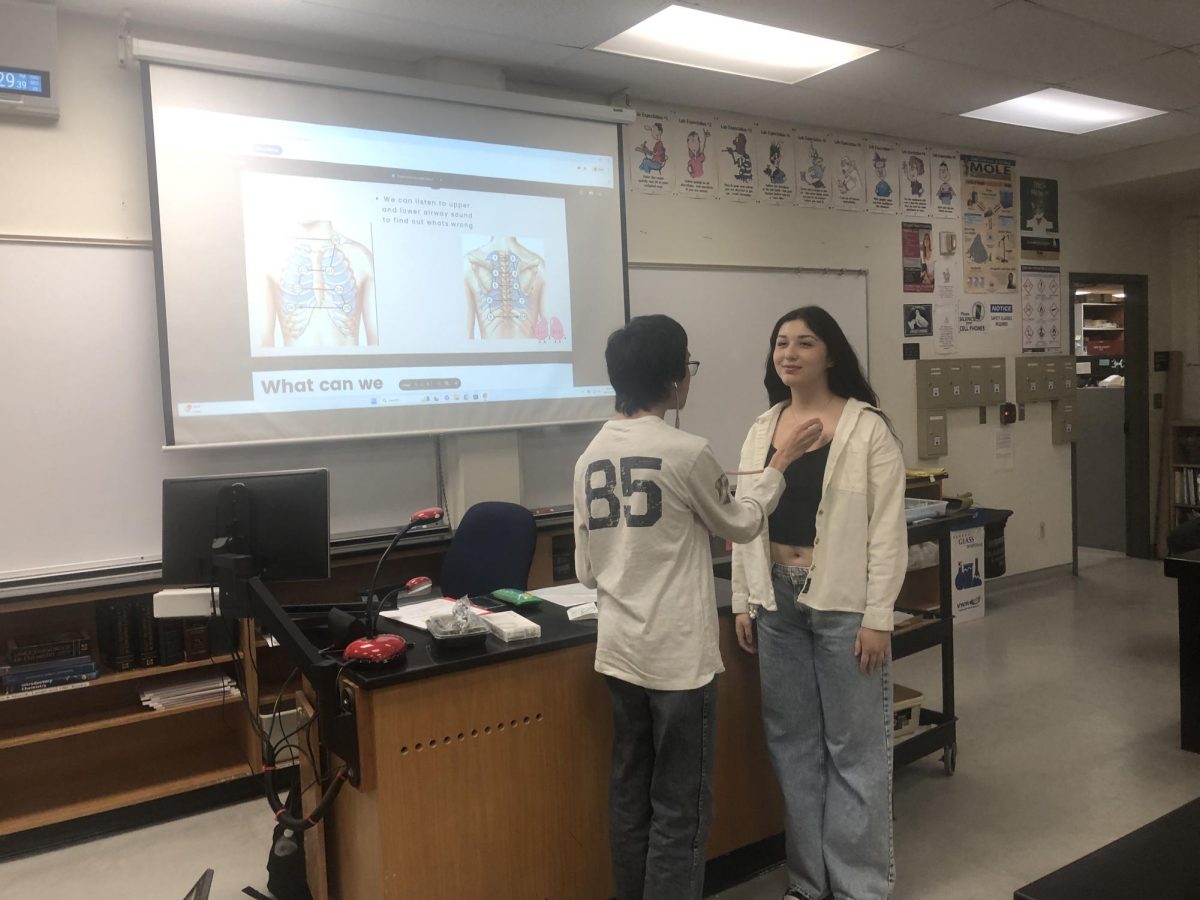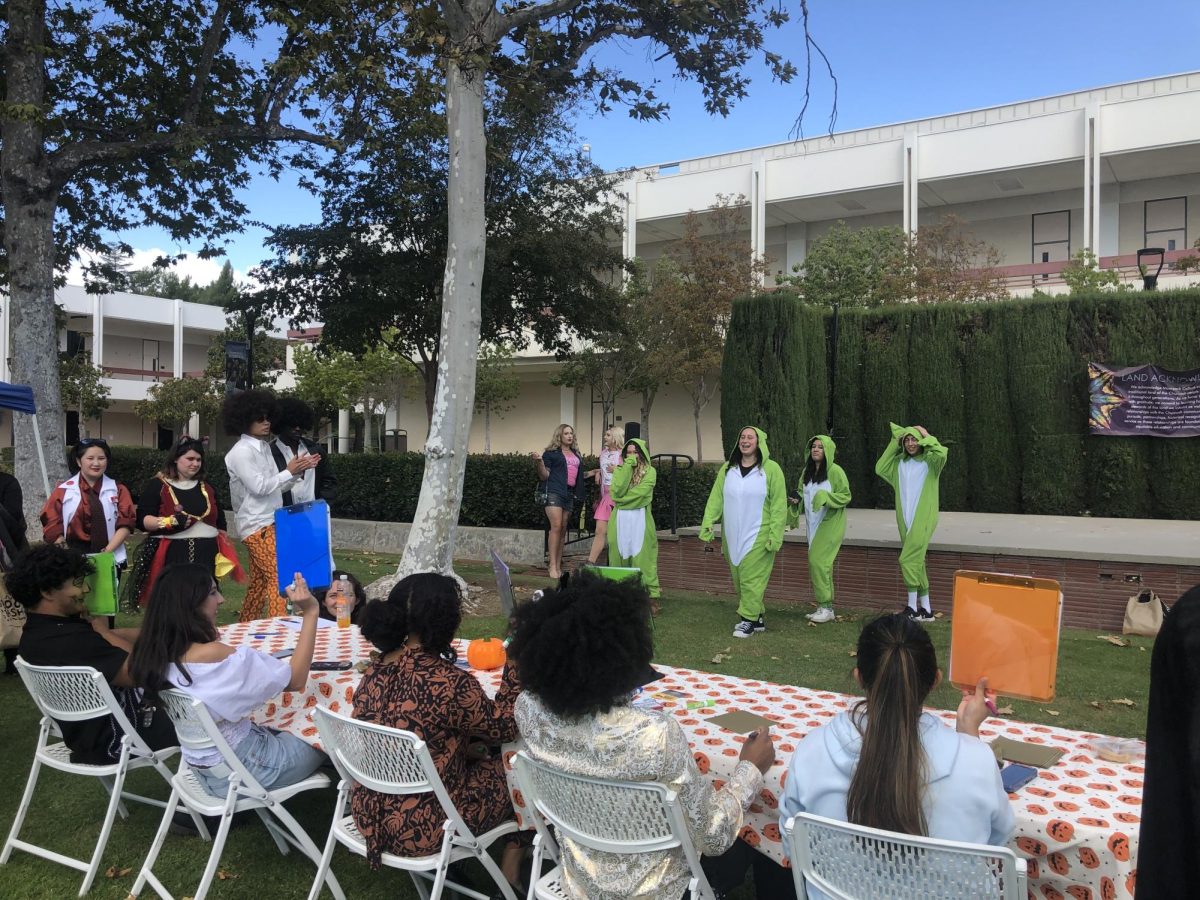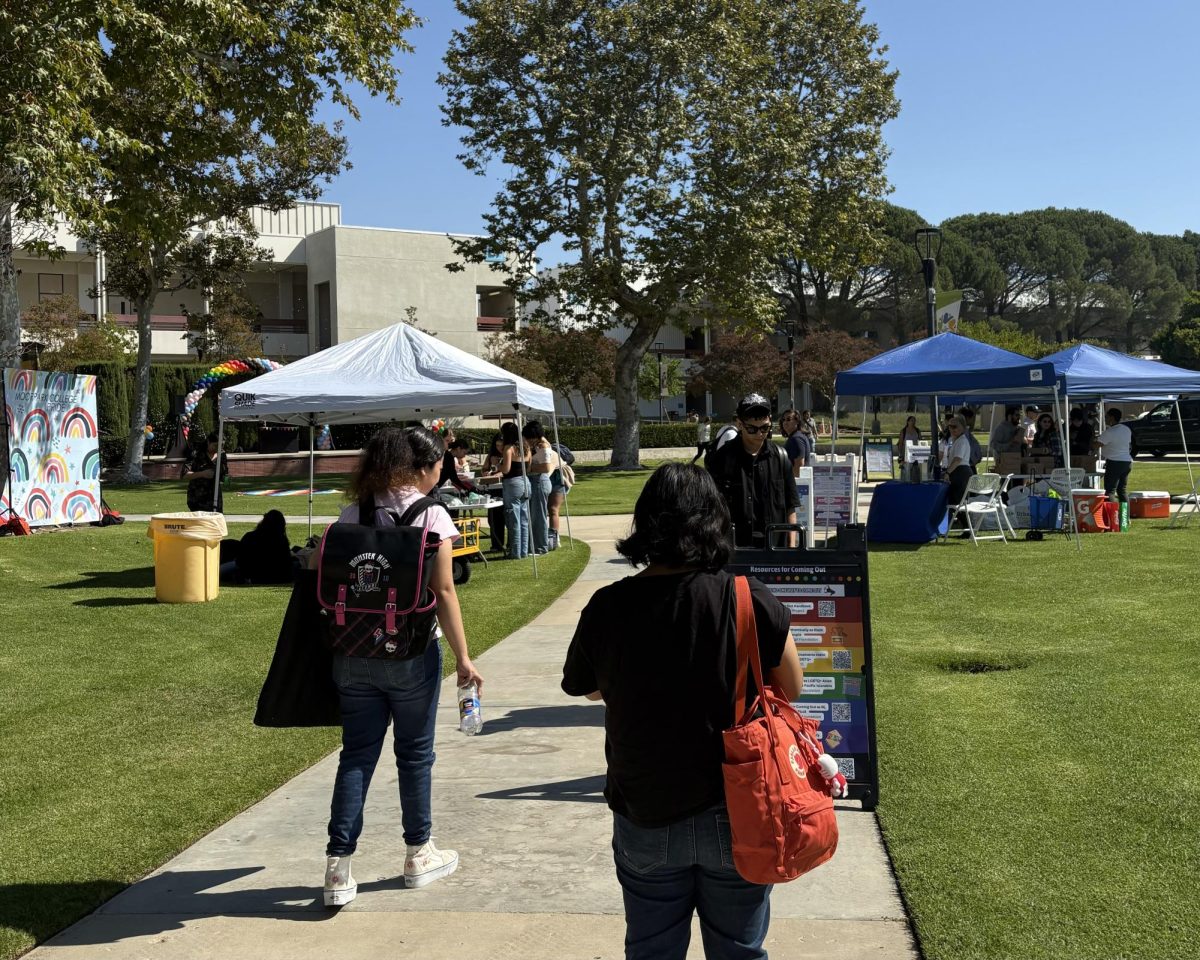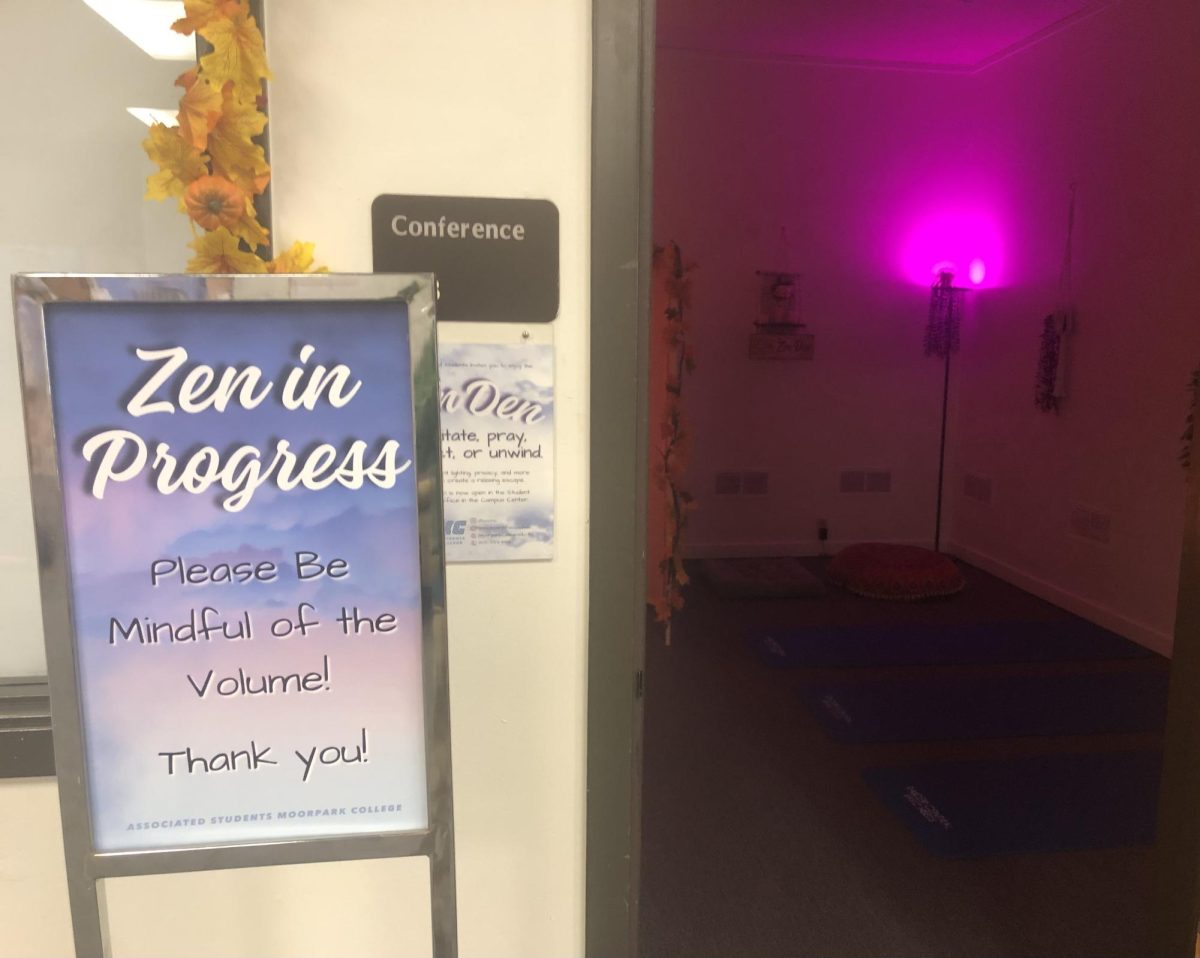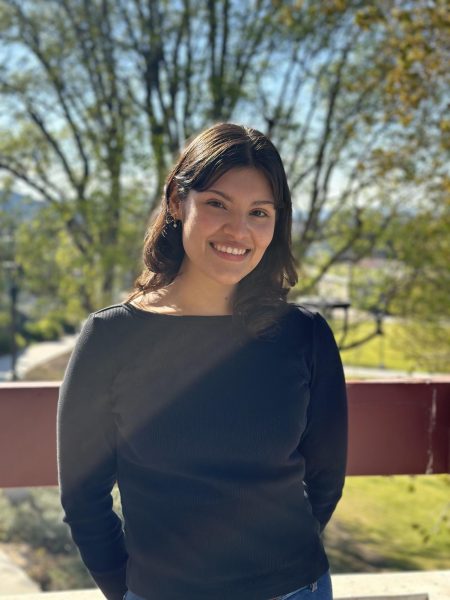On Sept. 9, 2023, over 50 Moorpark College performing arts students attended a mandatory workshop hosted by Theatrical Intimacy Education; a renowned instructional organization focussed on building self advocacy skills of student-performers.
With the intent of returning bodily autonomy back to performers, the three-hour seminar served as a department-wide launch of consent-based tools into PAC culture following Title IX outcry last December.
Founded in 2017, the mission of Theatrical Intimacy Education is one that “empowers artists with the tools to ethically, efficiently, and effectively stage intimacy, nudity, and sexual violence.” The consulting group hosts workshops nationwide to encourage students and educators to inhibit consent-based environments both on and off stage.
Back in May, Moorpark College performing arts faculty attended a six-hour workshop conducted by Amanda Rose Villarreal and Jordan Montemayor, Theatrical Intimacy Education faculty members. After being inspired by this conference, Moorpark College Theatre Professor Suzanne Fagan sought out to create an online intimacy education program of her own during the summer.
“I had six pages of notes from what they taught, so I created a module for all performing arts classes about intimacy training,” Fagan explained. “The module consists of a little lecture about consent culture and the history, participation, the balance of power and also a little about instructional touch. We have been implementing it all since the beginning of the semester.”
Fagan served as an active voice throughout the Title IX movement last year. Following the department’s openness to lecture on intimacy training, she has seen a positive shift in her students’ performances due to increased comfortability in these spaces.
“The bodily autonomy of these young performers is so important, and you see the change when they feel in charge of their own body and their own choices,” Fagan said. “We are thinking of doing this every year, or even every semester because it’s important for them to know.”
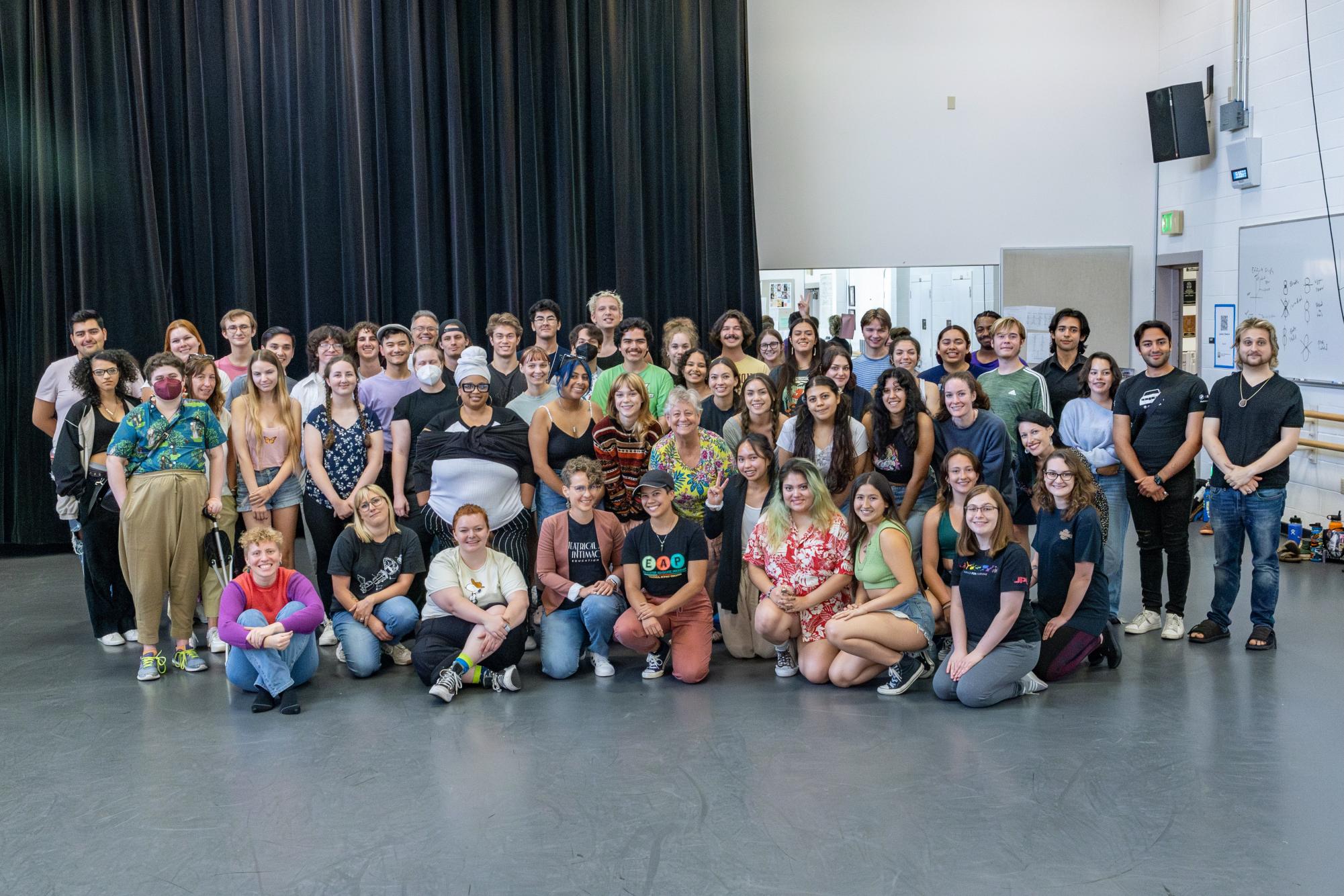
Both Villarreal and Montemayor returned to Moorpark College to teach students tools necessary for self advocacy. The lecture started by defying the inherited belief that actors, and other performing artists, must be “easy to work with” to retain work.
“When we get into higher education, or education in general, the “easy to work with” myth tends to create a power imbalance and some pressure,” Villarreal described. “If we want to be more effective creative collaborators, we need to have some guidelines or ‘best practices’ that remind us to treat each other with agency while we are working together.”
The instructors immediately addressed five “best practices” necessary to effective intimacy coordination. First on their list was “creating a culture of consent,” which emphasizes a space where performing artists are free to advocate for themselves without fear of negative repercussions.
“Creating a culture of consent does not mean that everybody gets what they want,” Villarreal stated. “Creating a culture of consent means that we [the instructors] are informing you of what is being asked, and you [the performer] have time and space to breathe and to decide whether or not that is something you choose to engage in and you are capable of engaging in it.”
To demonstrate both consent culture and establishing boundaries, Villarreal and Montemayor led the group through an interactive “Simon says” style activity. Students were asked to circle up to complete standard physical tasks as an experiment to show the need for personal boundaries.
Villarreal told students to stand up, sit down and bend down to touch their toes. After establishing this laid back atmosphere, Villarreal immediately asked students to drop down and do 10 push-ups. Regardless of the students’ hesitancy to complete the push-ups, nearly every student attempted to complete them – highlighting the notion that performers are conditioned to never say no.
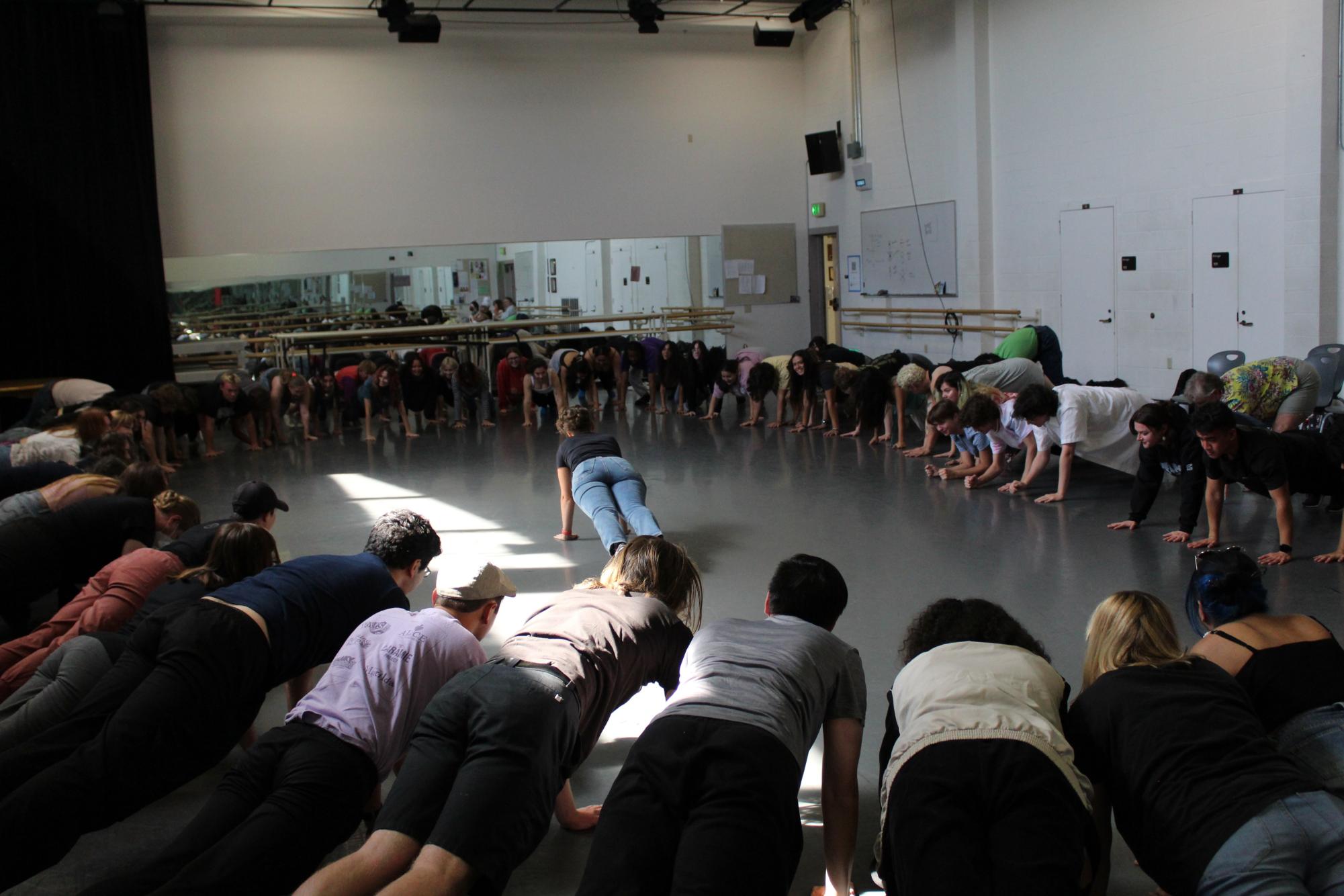
For these instances when artists feel as if they need a breath, or want to voice a boundary that they have, instructors introduced a safe word called “button.” The phrase acts as a pause for the entire environment, and allows for the performer to voice what should be modified in the activity for them to be comfortable.
Jasmine Gilmore, a third-year health sciences major at Moorpark College, weighed in on the game’s structure and the implementation of “button” throughout rehearsals as a choreographer.
“I liked that she [Villarreal] gave an example that you can say no to something, but it’s nice that you can give a suggestion about what you can do instead,” Gilmore explained. “As long as you give suggestions how you could grow into a certain end result, it makes the person that’s choreographing or directing have an easier time and want to help you out.”
As a student director for the upcoming “Speaking Movement” dance concert, Gilmore further noted the importance of consent in dance education.
“Especially at Moorpark College, there’s a lot of people that are just starting to dance for the first time, so it’s always good to check in with people and make sure they feel okay.”
After a short break, Villarreal and Montemayor demonstrated how dancers and actors can set physical personal boundaries through metaphorical “fences and gates.”
Prior to any physical touch during rehearsals, actors and dancers are now expected to clearly establish “fences,” bodily areas that the performer does not want touched, and “gates,” areas where touch is permitted, by hovering over their own body with wiping motions.
“There is no story that somebody’s boundary will stop us from telling,” Villarreal explained. “Oftentimes, when boundaries change you’ll find something that is surprisingly way more interesting to look at.”
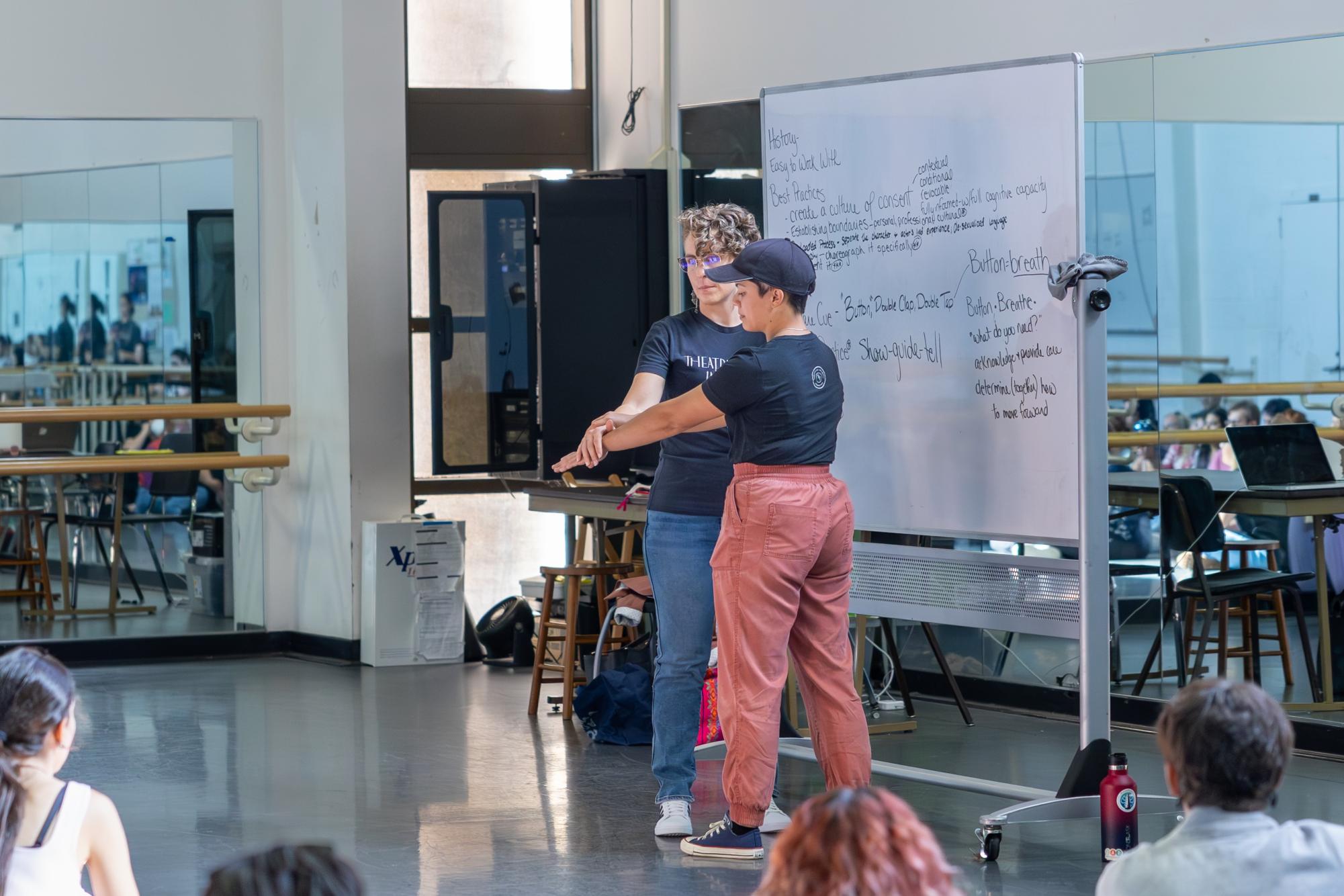
The lecture ended with a discussion on “deloaded language” and why using a desexualized vocabulary is essential for complacent collaboration during practice sessions. Students were also encouraged to use a “placeholder,” such as a high-five, in place of an intimate moment throughout rehearsals to limit social dialogue.
Andrew Perez, a second-year art major, noted that incorporating “button” and “deloaded language” vocabulary within performing arts spaces will be imperative to the department.
“I didn’t realize and I didn’t know how important it is, especially from an actor’s point of view and a dancer’s point of view,” Perez said. “Physical touch plays a big role in what we do, so communicating about boundary setting is really important and creates an instant connection.”
The Moorpark College Performing Arts Center 2023-2024 season is set to begin on Oct. 12, 2023 with theatre arts production, “The Curious Savage.” For more information, click here.

